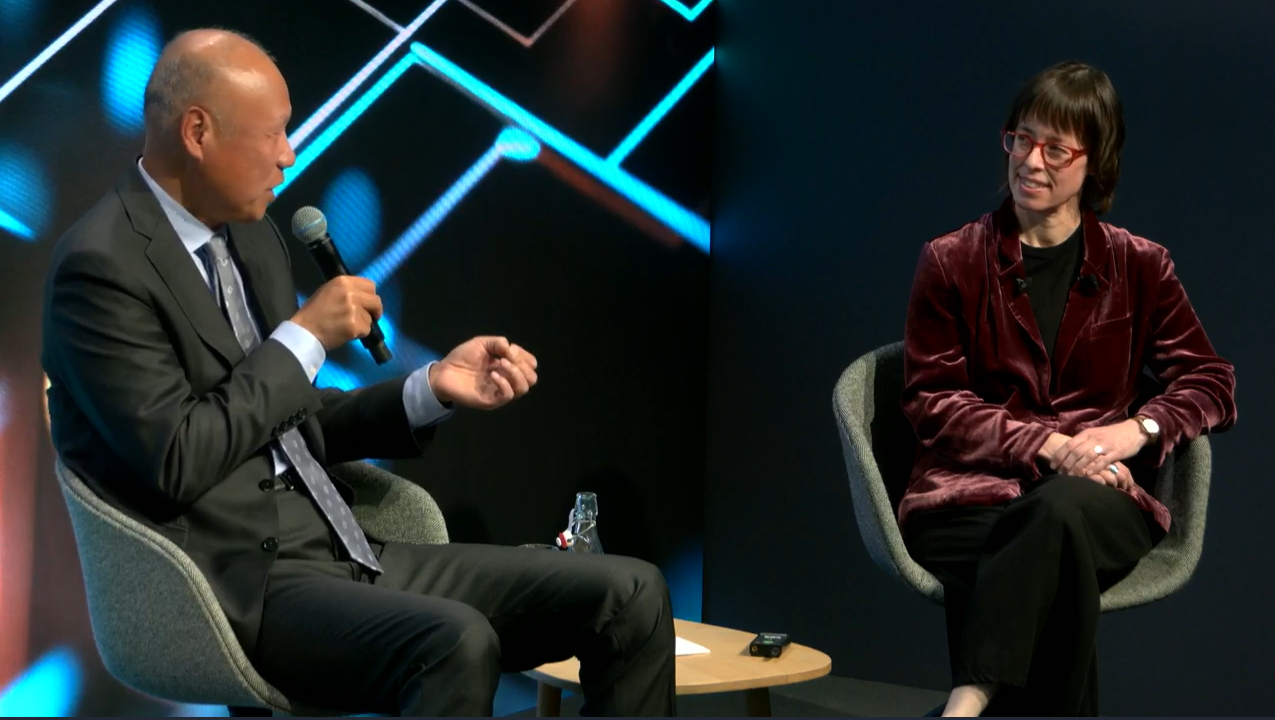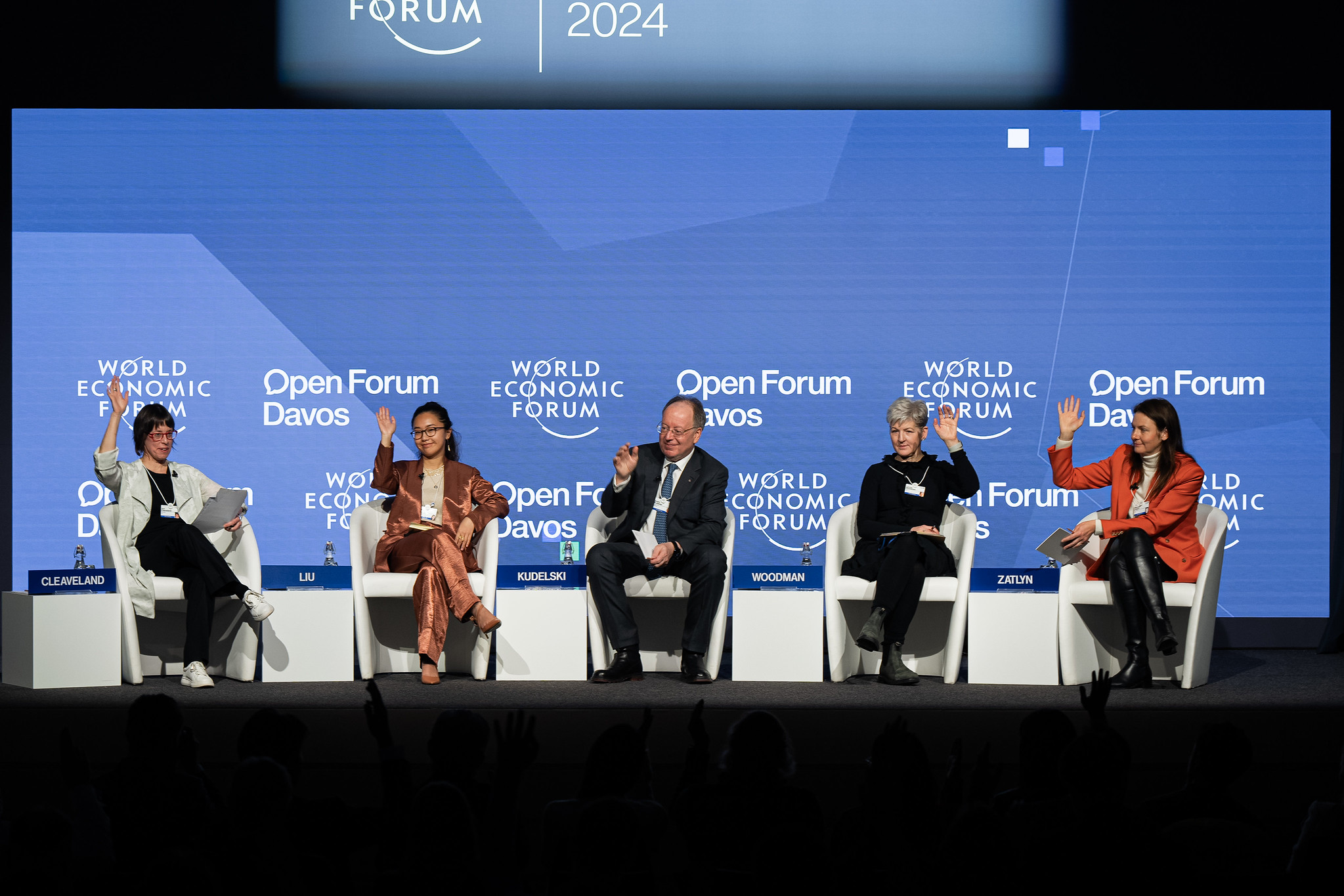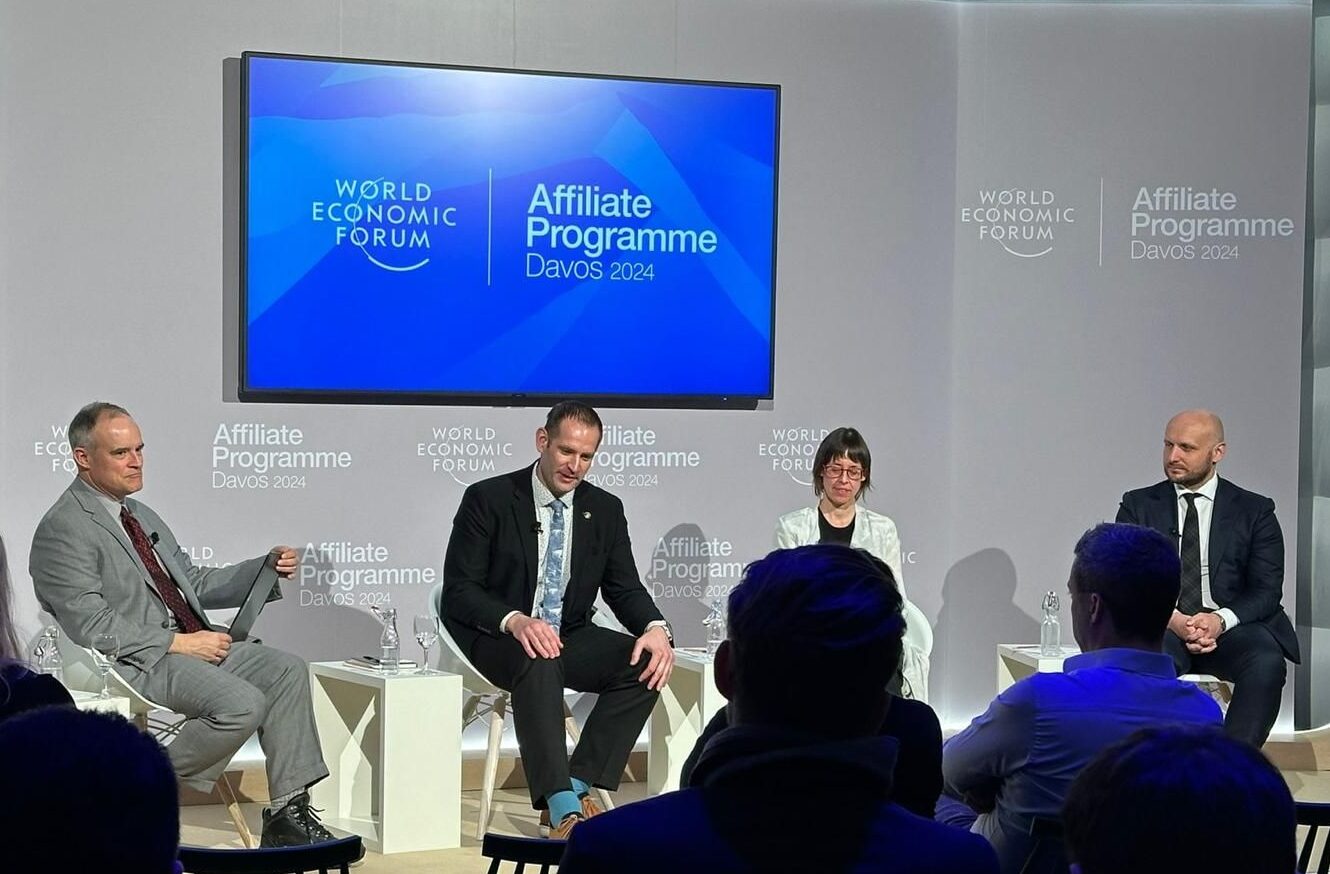The 54th Annual Meeting of the World Economic Forum (WEF) in Davos-Klosters, Switzerland hosted 3,000 participants from around the world, including heads of state and government ministers, business executives, and hundreds of civil society leaders, academics, youth representatives, social entrepreneurs, and news outlets.
The theme of this year’s meeting was “Rebuilding Trust” and focused on the fundamental principles driving trust, including transparency, consistency, and accountability.
Ann Cleaveland, CLTC Executive Director, was invited to participate in multiple events throughout the week. Below are some of the key highlights from her time in Davos.
Cybersecurity Futures 2030
Cleaveland’s first stop was to deliver a special presentation of “Cybersecurity Futures 2030.” In this session, Cleaveland shared some background about collaborating with the World Economic Forum’s Centre for Cybersecurity to explore what cybersecurity will look like in the year 2030 — and what it means for today’s organizations.
From conversations and workshops hosted around the world, Cybersecurity Futures 2030 identified three cross-cutting insights that CEOs and government leaders should have on their agendas as they prepare to navigate the next few years: trust, tempo, and talent.
Trust refers to the need for trust and innovation to grow hand-in-hand, as cybersecurity efforts will begin focusing on preserving the integrity of information. As for tempo, tracking the rate and pace of digitalization will become crucial to understand how to protect users and governments should implement digital product standards to do so. Lastly, there is a need for more cybersecurity training facilities, such as university cybersecurity clinics, to ensure the next group of talent is prepared for the future.

Following her presentation, Cleaveland was joined by Ken Xie, Founder, Chairman of the Board, and Chief Executive Officer at Fortinet.
The pair discussed what is needed to transform the talent equation for cybersecurity and support smaller organizations — such as non-profits, small cities and municipalities, and other small critical infrastructure providers — in practicing the same cybersecurity services that larger enterprises can afford. Xie referenced Fortinet’s partnership with the WEF Centre for Cybersecurity to create a global cybersecurity certification and training program that has certified over 1M people as cybersecurity experts.
“We need a community effort to handle cybersecurity training — different vendors working together in partnership with people from the academia, non-profit, business, and government side to refresh the knowledge base and train a broader population of people on the importance of cybersecurity,” said Xie. “It’ll take a whole community together to bring this training up to speed.”
Cracking the Code

Cleaveland then moderated a panel as part of WEF’s Open Forum program, which invited members of the Swiss public and online viewers from around the world to participate. The panel, titled “Cracking the Code,” focused on how organizational leaders can foster innovation and cooperation to ensure preparedness against increasingly sophisticated cyber threats caused by extensive collaboration among cybercriminal networks and their adoption of emerging technologies.
Cleaveland was joined by Michelle Zatlyn, Co-Founder, President and Chief Operating Officer at Cloudflare; Lauren Woodman, Chief Executive Officer at DataKind; Kathy Liu, joining as a member of WEF’s Global Shaper Community; and André Kudelski, Chairman of the Board and Chief Executive Officer at Kudelski Group.
The panelists discussed trends in cybercrime operation and innovation, how to out-think phishing and social engineering attacks, defending the social sector, and collaborative tools to help solve these problems.
Deconstructing the Ransomware Epidemic

Cleaveland’s final stop was at a session organized by Fortinet. Cleaveland was joined by fellow panelists Derek Manky, Chief Security Strategist and Global Vice President of Threat Intelligence at Fortinet; Tom Okmanas, Co-Founder of Nord Security; and moderated by J. Michael Daniel, President & CEO of Cyber Threat Alliance and Co-Chair of the World Economic Forum Global Future Council on the Future of Cybersecurity.
The panel offered insights into deconstructing the ransomware epidemic. As Daniel and Manky remarked, ransomware has evolved from a nuisance crime into a threat to national security, economic prosperity, and public health and safety. It still remains one of the top crimes on the internet, and double, triple, and even quadruple extortion are now common.
The panel explored the preparations leaders need to make now as new advancements and corresponding security challenges emerge at an unprecedented pace. Cleaveland pointed to insights from the Cybersecurity Futures 2030 project about the pace and scale of digitalization in emerging economies. “Leaders need to pay attention to how the attack surface is growing, as much as the capabilities of specific emerging technologies,” she said. “A ransomware attack can be existential for public infrastructure and community organizations, which are often the least equipped to defend themselves,” she added.
Adapted from “CLTC Presents at the World Economic Forum Annual Meeting” published on January 30, 2024.










